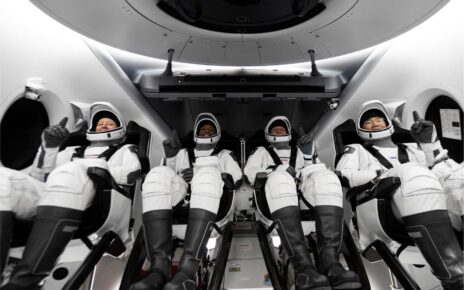In a significant move to attract talent and investment, the United Arab Emirates has announced a slew of radical changes, including 10-year visas for specialists working in medicine, science, research and technical fields. The UAE will now allow foreign companies to own 100 per cent of their business and students will be able to secure 5-year visas. ‘Exceptional’ graduates can stay for 10 years.
These are massive changes for the country with potentially far-reaching consequences, at a time when major developed countries like the US are putting up barriers in visas and immigration policy.
If these policies are implemented, Indians and Indian businesses will be key beneficiaries. At 2.8 million individuals, Indians are the largest expatriate community in the UAE. Professionally qualified personnel constitute at least 15 to 20 per cent of the community, followed by 20 per cent white-collar non-professionals (clerical staff, shop assistants, sales men and accountants). The remaining 65 per cent comprises blue-collar workers.
Talmiz Ahmad, former Indian ambassador to the UAE, told The Indian Express, “This is an expression of the UAE’s new self-confidence, and a deep interest in becoming a major centre for global business, technology and education.”
According to the new rules announced on Sunday night, the UAE will also offer visas of up to 10-years for the families of specialists working in medicine, science, research and technical fields. Many Indian doctors and engineers would become a beneficiary of this move.
The new rules will also let foreign investors establishing a business or putting money in the country secure a visa of up to 10 years. Foreign companies will also be able to own 100 per cent of their business in the UAE. At present, they must offer an Emirati partner a substantial stake — 51 per cent, unless they’re based in a free trade zone.
This is expected to benefit many Indian businesses and entrepreneurs, who may be facing challenges currently in the UAE and other parts of the world. Most shops and restaurants are outside the free zone and require a local partner to operate in the UAE.
Yusuffali MA, chairman and managing director of UAE-based retail giant Lulu Group International, called this a “landmark announcement” and a “revolutionary step”.
“A landmark announcement, sure to further boost the UAE’s image as the most investor friendly economy in the region and 100 per cent foreign ownership is a revolutionary step (that will) generate huge interest among global investors,” he tweeted. “This new long term visa will go a long way in attracting and retaining not only investors, but also top notch professionals who are very essential in today’s highly competitive world. Salute to the visionary leadership of this great nation,” he added. The UAE Cabinet said the move is largely aimed at attracting international investors and highly-skilled professional workers. Indians have played a major role in the economic development of the UAE. In 2015, the annual remittances made by Indians in the UAE amount to over $13.75 billion (over Rs 93,000 crore).
The new rules also say that students would also be able to secure five-year visas and “exceptional” graduates could remain in the country for 10 years. Right now, students must apply to renew their visa every year.
The UAE has said it wants to make the Emirates as competitive as possible as it tries to shift from an oil-based economy to a knowledge-based economy. This has been prompted by the fluctuating oil prices, which have impacted UAE’s economy.
While these moves have been widely welcome, key questions remain on the specifics. Indian diplomats studying the proposals said it remains to be seen whether the visa for professionals will be a 10-year employment visa or 10-year residency visa.
Right now, visa of most professionals is tied to their current employer and they don’t have manoeuvrability. But if the changes lead to a residency visa — like the US green card — professionals will have job mobility and will not be tied to a particular employer.
Sheikh Mohammed bin Rashid, the Vice-President, Prime Minister and Ruler of Dubai, on Sunday, gave the example of doctors and engineers being the beneficiaries in the cabinet meeting.
Explaining the context, former envoy Talmiz Ahmad said, “These changes are a review of the 50-year social contract between the UAE government and their people…it means that while the US is putting up walls, the UAE is removing barriers. They don’t just want to import technology, but want to contribute to technological development.”
The UAE, Ahmad said, has positioned itself as a truly global market place, where “it is an open society, freedom of all religions exist there, and the anxieties and cultural sensitivity is low key now.” This shows that those anxieties of the 1960s and 70s are gone, and the UAE is able to retain its culture, while they aspire to become global citizens.



